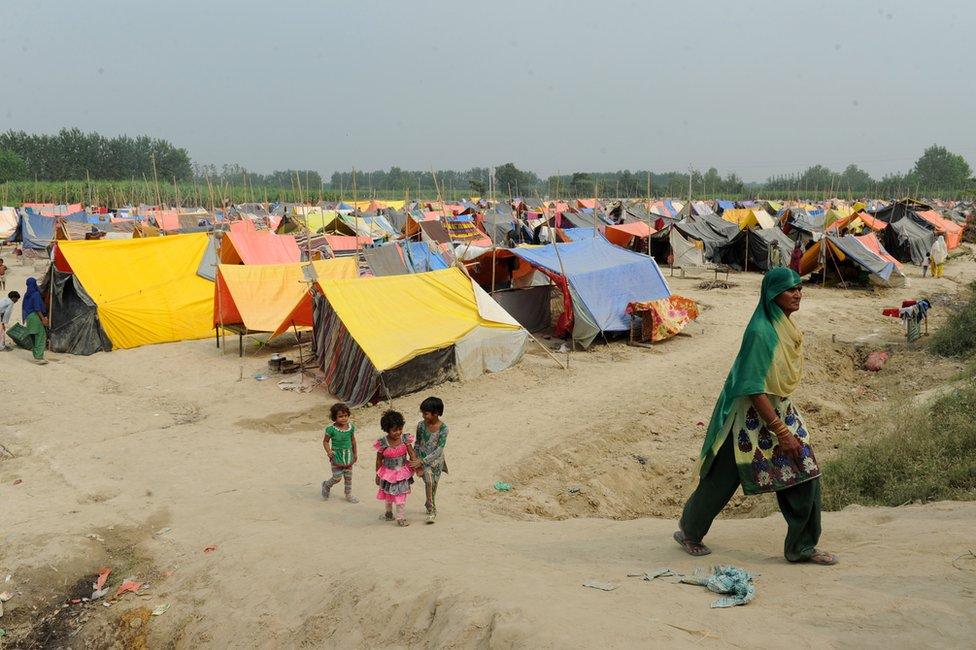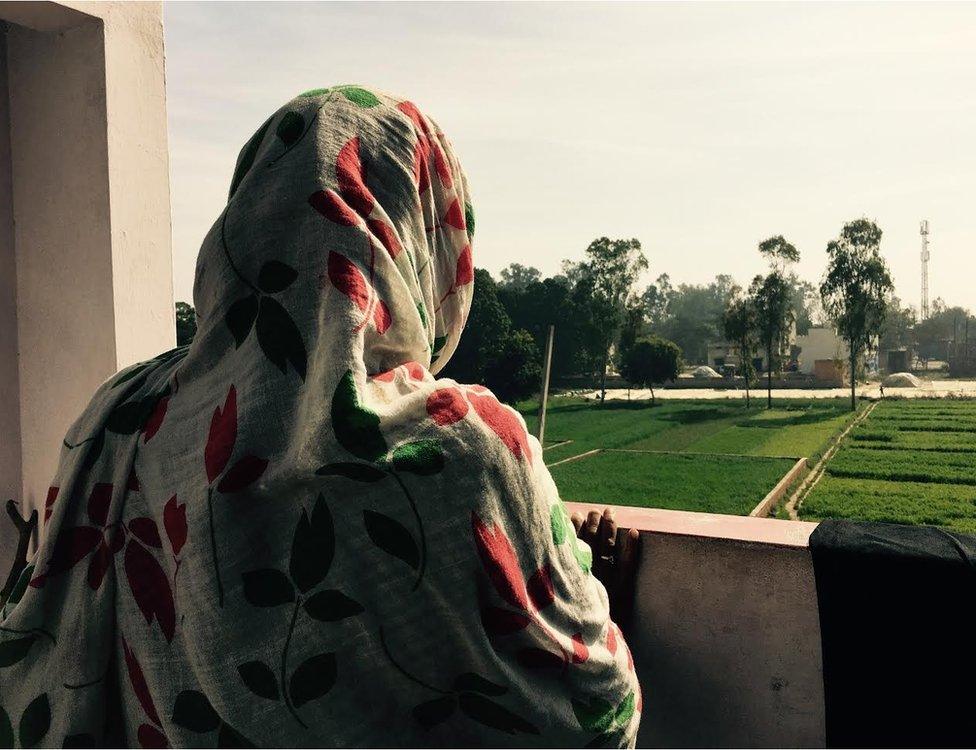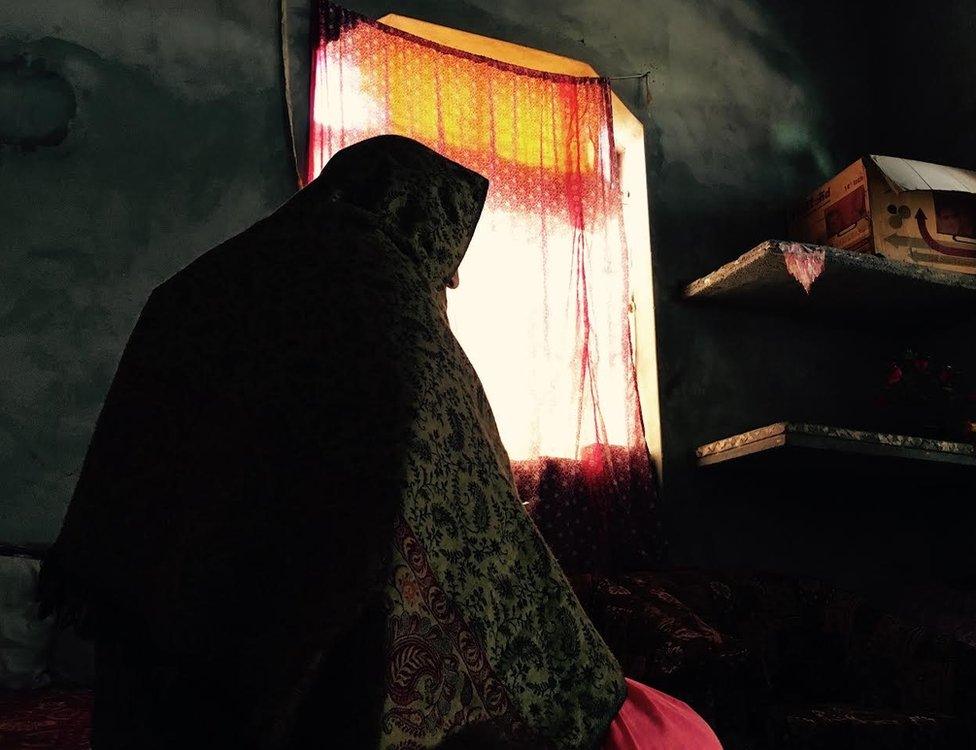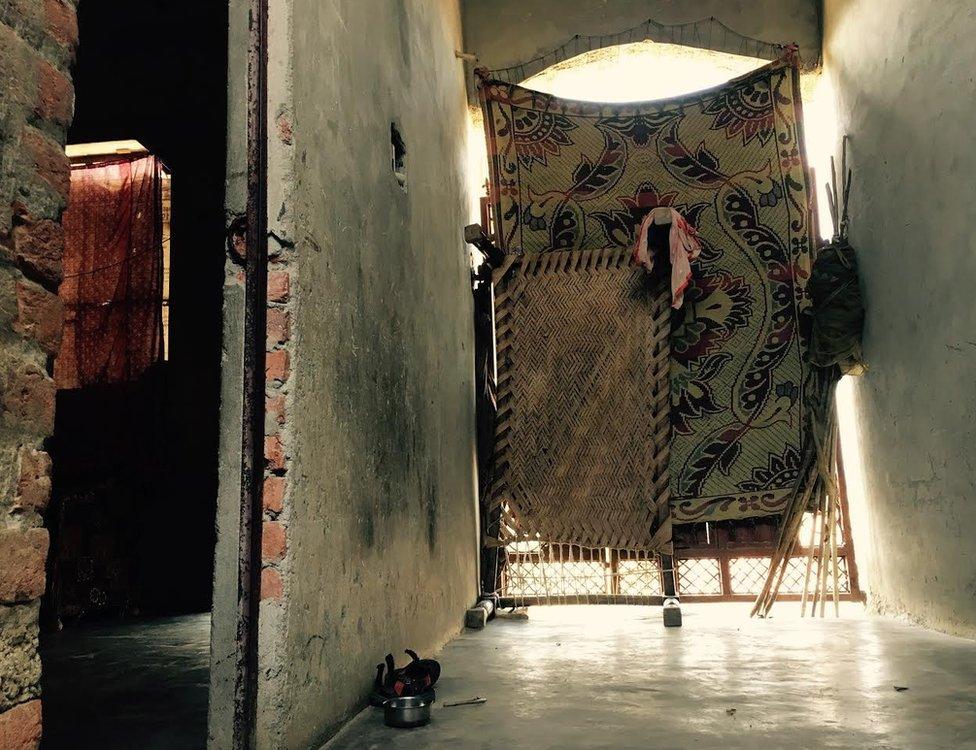No justice in sight for India's riot rape survivors
- Published

Thousands were forced to flee their villages when Hindu-Muslim riots erupted in 2013
More than 60 people died and thousands were forced to flee their villages when Hindu-Muslim riots erupted in two districts of the northern Indian state of Uttar Pradesh in 2013.
The violence, sparked by the alleged harassment of a young Hindu woman by a Muslim man, lasted two days.
A few days later, seven women, all Muslims, went to the police alleging that they were gang-raped during the violence that broke out in their villages. The police took a year to arrest all the 29 accused, who were later released on bail.
The trials were supposed to be completed in special fast track courts within two months. But nearly four years on, the women are still waiting for justice.
Amnesty International's Mariya Salim has worked on a report tracing the legal journey of the women and says there is a clear lack of will on the part of the administration to ensure they get justice.
"Research tells us that there have been only three convictions in rape cases during Hindu-Muslim communal riots since the country's partition, and that hasn't changed even now. We have seen delays at every stage", Ms Salim says.
The BBC's Divya Arya travelled to the area to listen to the women's stories.

Rubina

"No video recording and no photos on the internet," was how Rubina greeted me when I visited her new home, 30km from the village where she lived before the riots.
In the aftermath, many Muslims were forced to leave and settle elsewhere.
The Muzaffarnagar-Shamli districts are now dotted with ghettos, where those displaced by the riots have bought land and constructed houses after the Supreme Court directed the state government to pay them compensation.
Rubina is a middle-aged woman. She stood before me with a baby resting on her elbow and shoulders and two young children tugging at her tunic.
"I am tired of having my grandchildren complain to my daughter that they are humiliated at school because some child saw their 'rape victim' grandmother's photo," she told me later.
Rubina said she was gang raped by four men, including her neighbours.
"I fell unconscious, and when I came to, I just ran, with everyone else in the village."
They had no time to pack or take any money with them.
Together they lived in relief camps for months on end. Shared trauma and difficult circumstances bred strength and sisterhood.
But then there were the threats.
"The accused threatened to kill my children, so I once retracted my statement, but after my husband and lawyer reassured me I testified before the judge with the complete truth."
Charges have still not been framed in her case, despite her giving testimony, undergoing medical tests and attending endless rounds of court hearings.
Rubina said she didn't see the point of continuing. Struggling to make ends meet, she feels uprooted and lost.
"All I've got is the tag of fallen woman, I'm exhausted. Why should I pursue the case?"

Nafeesa

Just like the other alleged rape survivors, Nafeesa cannot read or write.
"I had only ever heard of the Delhi gang rape incident before my own rape, so I thought the accused would get punished as soon as I identified them in my complaint," she said.
"Little did I know these cases can take so long."
Nafeesa grew quiet as if remembering that night all over again, where she says she was raped by five men, all known to her.
She alleged they threatened to kill her two-year-old son to stop her screaming.
Nafeesa now lives in a colony of the riot-displaced only 2km from her village.
"We would never go back there, there is nothing left for us, and they (Hindus) would dare not come here. We are safe here among people of our own religion," she said.
But it's a tough life. Many of these colonies have no electricity connections, drainage or roads.
Then she said: "Sometimes I wonder why I filed this case. I haven't got any justice, and the threat to my life still remains."
"They [the accused men] live in their villages and roam free, they lost nothing; we lost everything."

Khalida

Her voice stood out clear, crisp and fresh. If there were any signs of fatigue with the long legal battle, she hid them well.
"I won't leave them unpunished", she said over the phone.
"I haven't lost courage and I haven't forgotten anything, they will have to pay for my countless sleepless nights."
Khalida is exceptionally brave. She has left Uttar Pradesh, where she alleges she was attacked by three men during the riots. They found her in fields where she had fled.
She is now in hiding with her children, but I was able to speak to her after meeting her husband.
He told me that the threats to their family are still grave and the pace of the trial very slow, so Khalida's lawyer has petitioned that her case be heard outside Uttar Pradesh.
But that petition was filed a year ago and is still waiting to be heard.
Just like the other women who have come forward, their livelihoods have also been disrupted by riots and fighting the rape case is as much a legal matter as it is a financial one.
But Khalida's husband told me he'd go to any length to support his wife's quest for justice.
As I began to hang up the phone, Khalida said: "He is very fond of me... I'll continue to fight with his strength."
Names of all the rape survivors have been changed